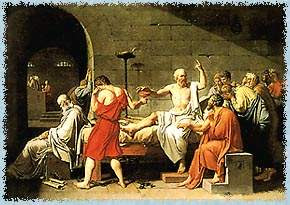Summary:
By Joseph StiglitzThe rising crescendo of bickering and acrimony within Europe might seem to outsiders to be the inevitable result of the bitter endgame playing out between Greece and its creditors. In fact, European leaders are finally beginning to reveal the true nature of the ongoing debt dispute, and the answer is not pleasant: it is about power and democracy much more than money and economics. Of course, the economics behind the program that the “troika” (the European Commission, the European Central Bank, and the International Monetary Fund) foisted on Greece five years ago has been abysmal, resulting in a 25% decline in the country’s GDP. I can think of no depression, ever, that has been so deliberate and had such catastrophic consequences: Greece’s rate of youth unemployment, for example, now exceeds 60%.Read rest here.By Paul KrugmanIt has been obvious for some time that the creation of the euro was a terrible mistake. Europe never had the preconditions for a successful single currency — above all, the kind of fiscal and banking union that, for example, ensures that when a housing bubble in Florida bursts, Washington automatically protects seniors against any threat to their medical care or their bank deposits.
Topics:
Matias Vernengo considers the following as important: ECB, European Crisis, Greece, Greek crisis, IMF, Krugman, Stiglitz, Troika
This could be interesting, too:
By Joseph StiglitzThe rising crescendo of bickering and acrimony within Europe might seem to outsiders to be the inevitable result of the bitter endgame playing out between Greece and its creditors. In fact, European leaders are finally beginning to reveal the true nature of the ongoing debt dispute, and the answer is not pleasant: it is about power and democracy much more than money and economics. Of course, the economics behind the program that the “troika” (the European Commission, the European Central Bank, and the International Monetary Fund) foisted on Greece five years ago has been abysmal, resulting in a 25% decline in the country’s GDP. I can think of no depression, ever, that has been so deliberate and had such catastrophic consequences: Greece’s rate of youth unemployment, for example, now exceeds 60%.Read rest here.By Paul KrugmanIt has been obvious for some time that the creation of the euro was a terrible mistake. Europe never had the preconditions for a successful single currency — above all, the kind of fiscal and banking union that, for example, ensures that when a housing bubble in Florida bursts, Washington automatically protects seniors against any threat to their medical care or their bank deposits.
Topics:
Matias Vernengo considers the following as important: ECB, European Crisis, Greece, Greek crisis, IMF, Krugman, Stiglitz, Troika
This could be interesting, too:
Merijn T. Knibbe writes ´Extra Unordinarily Persistent Large Otput Gaps´ (EU-PLOGs)
Matias Vernengo writes Milei’s Psycho Shock Therapy
Merijn T. Knibbe writes Monetary developments in the Euro Area, september 2024. Quiet.
Merijn T. Knibbe writes In Greece, gross fixed investment still is at a pre-industrial level.
By Joseph Stiglitz
By Paul Krugman
The rising crescendo of bickering and acrimony within Europe might seem to outsiders to be the inevitable result of the bitter endgame playing out between Greece and its creditors. In fact, European leaders are finally beginning to reveal the true nature of the ongoing debt dispute, and the answer is not pleasant: it is about power and democracy much more than money and economics. Of course, the economics behind the program that the “troika” (the European Commission, the European Central Bank, and the International Monetary Fund) foisted on Greece five years ago has been abysmal, resulting in a 25% decline in the country’s GDP. I can think of no depression, ever, that has been so deliberate and had such catastrophic consequences: Greece’s rate of youth unemployment, for example, now exceeds 60%.Read rest here.
By Paul Krugman
Read rest here.It has been obvious for some time that the creation of the euro was a terrible mistake. Europe never had the preconditions for a successful single currency — above all, the kind of fiscal and banking union that, for example, ensures that when a housing bubble in Florida bursts, Washington automatically protects seniors against any threat to their medical care or their bank deposits. Leaving a currency union is, however, a much harder and more frightening decision than never entering in the first place, and until now even the Continent’s most troubled economies have repeatedly stepped back from the brink. Again and again, governments have submitted to creditors’ demands for harsh austerity, while the European Central Bank has managed to contain market panic.

